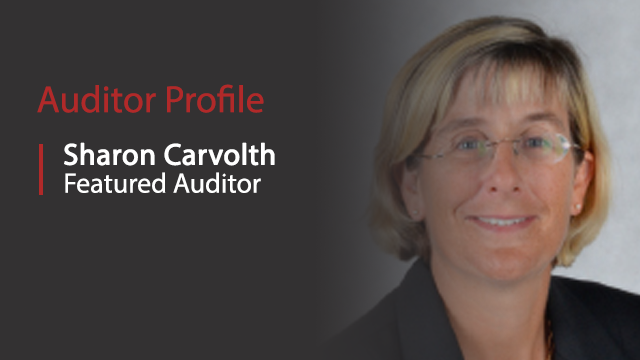Sharon Carvolth began her career in quality in 1993. Two years later she started Audit Services International, which has grown to become a leading consultancy for the mining industry. The Auditor Online speaks to Carvolth to learn about her auditing career trajectory and her views on the current state of auditing.
Carvolth was introduced to quality in 1993 in her role as laboratory manager which involved having the laboratory certified to NATA standards including ISO 9001 and subsequently auditing these standards.
“My next laboratory position was short lived and I took on a corporate role to build systems nationally for the laboratory company,” Carvolth said. “This morphed into consulting for the Queensland [Australia] mining industry.”
Carvolth said she didn’t set out to become an auditor, and reflects that her career progression was organic.
“I have a passion for systems and that translated to my clients who pushed and pushed me to become a better version of myself, which included auditing.
“Since 1994 I have been auditing the Australian mining industry for health, safety, environment and quality [HSEQ] compliance from both a legal compliance and corporate governance perspective. I have been extremely fortunate to be looked upon favorably by every mining corporate in Australia—having trained a very large proportion of the industry in lead auditing. I have successfully held contracts with the Queensland, New South Wales, and Tasmanian mining departments to train their inspectorate as lead auditors.”
Carvolth founded Audit Services International in 1995. The company has grown to become a leading mining industry consultancy for safety and health management systems implementation, maintainence, auditing, and training. As principal of the organization, Carvolth’s role is three-pronged depending on the needs of the client and can include lead auditor training, leading HSEQ audit teams for the mining, oil, and gas industry, and acting as a systems and risk consultant.
For Cavolth, the biggest attraction to auditing is how much you can learn in a short period of time.
“Every organization, even within the same industry or corporate entity is vastly different. After every audit I come away with a renewed skill set, a reinforcement of knowledge, and more experience. Auditors are being continuously refreshed and renewed because of the exposures that clients provide them.”
However, the job, of course, is not without its challenges.
“As with any job, the biggest challenge is dealing with people. All jobs are stressful at the best of times and when you add the pressure of an audit on top, you sometimes don’t see people at their best. Some people have preconcieved ideas with respect to the audit and therefore panic when in the presence of auditors, so the constant challenge is to promote a safe and comfortable environment so that we an learn from each other.”
Carvolth considers the biggest challenge facing the profession is the lack of regulation of auditors.
“This means that there are a lot of people who trade as auditors but only perform glorified inspections. This compromises a true auditor’s ability to get work as they cannot compete from a timing or cost perspective. The highest risk on my risk register is an uneducated client—meaning that if the client does not know what to ask for, or what to get, they may not get what they need because an auditor does not end up providing that service.”
Carvolth believes the best way to improve the standard of auditing is for auditors to be willing to learn at every audit.
“An open mind makes for a very good auditor.”

